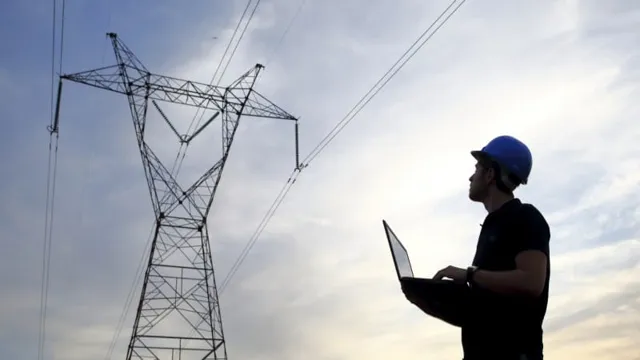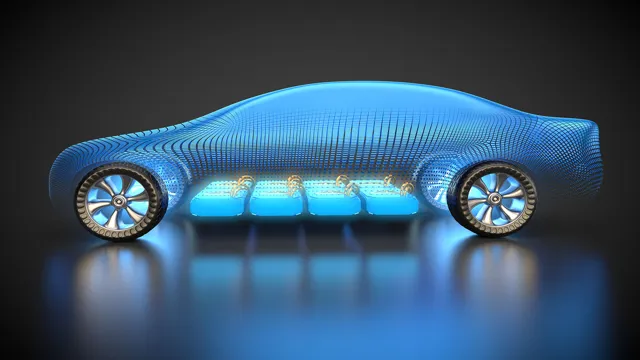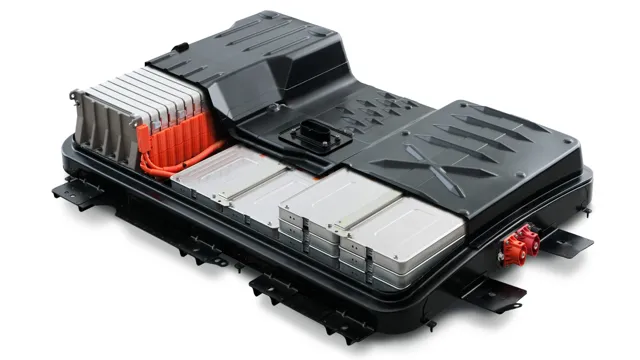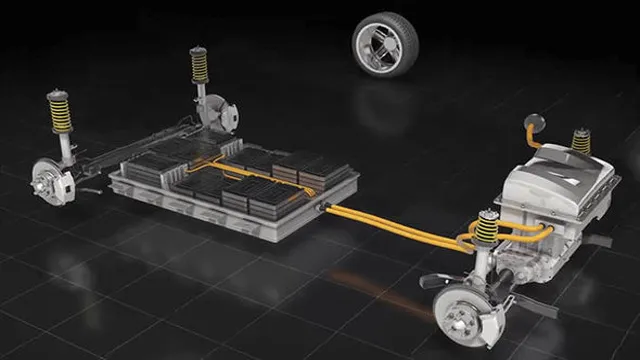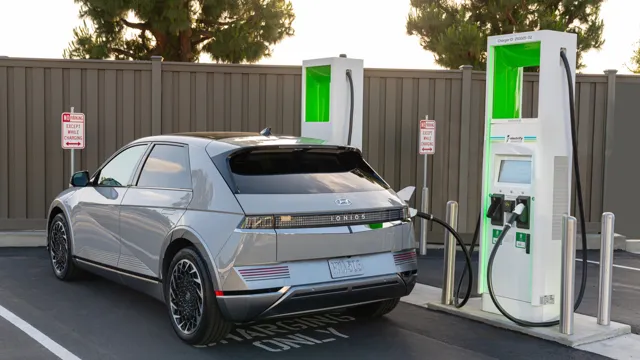Powering Your Future: Exploring Exciting Electrical Power Technology Career Paths
How many times have you flicked a switch and enjoyed the convenience of electricity? How often do you think about the complexity of the mechanisms that power your digital clock, refrigerator, and other essential appliances? The power behind electricity is immense, and the Electrical Power Technology career path is where the magic happens. This intricate field is the backbone of modern-day living, and it offers a myriad of career options that cater to different skill sets and interests. Whether you have a passion for mechanics, are a problem solver, enjoy working in a high-tech environment, or thrive under pressure, there’s a career path in Electrical Power Technology just waiting for you to explore.
In this blog, we’ll delve into four distinct career paths in Electrical Power Technology that can take your career to new heights.
Understanding the Electrical Power Industry
Electrical power technology is an ever-growing field that offers numerous career paths for individuals with a passion for technology and a desire to make a difference. From designing and maintaining power grids to developing renewable energy solutions, there are many opportunities available to those interested in this field. If you have a talent for problem-solving and a desire to work with cutting-edge technology, a career in electrical power could be the perfect fit for you.
With the increasing demand for energy-efficient solutions and the growth of renewable energy sources, now is a great time to explore the possibilities of a career in electrical power technology. Whether you choose to work in research and development or in the field, this exciting industry offers a world of possibilities for anyone with a passion for technology and a desire to make a difference. So what are you waiting for? Start exploring the possibilities of a career in electrical power technology today!
Major Employers and Skills Needed
The electrical power industry is a dynamic field that powers our daily lives and keeps society functioning. Major employers in this industry include power generation and distribution companies, electrical equipment manufacturers, and renewable energy providers. To succeed in this industry, one requires a strong understanding of electrical principles and the ability to work with complex machinery.
Professionals in this field must also possess critical thinking skills, problem-solving abilities, and advanced technical knowledge. Individuals with a background in electrical engineering, power systems analysis, and energy management are highly sought after in this industry. As the world shifts towards renewable energy, skills in solar and wind power are increasingly important.
Keeping pace with technological advancements is crucial to stay relevant in this field. With the growing demand for energy and the need to address environmental concerns, the electrical power industry offers exciting career opportunities for those seeking to make a significant impact on society.

Salary and Job Outlook
The electrical power industry is an essential part of modern society. It encompasses everything from power generation, transmission, and distribution to smart grid technology and renewable energy sources. As such, there are a wide range of career opportunities in this sector, each with its own set of salary and job outlook considerations.
For example, electrical engineers who specialize in power systems can expect a median salary of around $98,530 per year, with a projected job growth rate of 3% through 202 On the other hand, renewable energy technicians can expect to earn a median salary of around $52,910, with a projected job growth rate of 51% through 202 These differences reflect the shifting priorities of the industry, as more and more businesses and consumers seek out cleaner, more sustainable sources of power.
Whether you’re interested in designing electrical systems, maintaining power grids, or working on cutting-edge research and development projects, there are plenty of exciting opportunities in the electrical power industry, and the job outlook is always changing.
Types of Electrical Power Technology Careers
If you’re interested in pursuing a career in electrical power technology, there are several different career paths to consider. One popular option is becoming an electrical engineer, where you’ll design, develop, and test electrical systems and equipment. Another option is working as an electrical technician, where you’ll use your knowledge to install, maintain, and repair various electrical systems and machines in different industries.
If you enjoy managing projects and teams of people, you might also consider a career in electrical project management. Additionally, there are opportunities to specialize in renewable energy technology, which involves using resources like solar, wind, and hydro power to generate electricity. Regardless of which career path you choose, it’s important to have a strong foundation in math, physics, and electrical theory.
With dedication and hard work, a career in electrical power technology can be both challenging and rewarding.
Electrician
Electrician Electrical power technology is a vast field with numerous career opportunities. If you have an interest in electricity, you can pursue a career as an electrician. There many types of electrician jobs, including residential, commercial, and industrial electricians.
Residential electricians specialize in installing and maintaining electrical systems in homes and apartments. On the other hand, commercial electricians work on complex electrical systems in public buildings, and industrial electricians work in factories and manufacturing plants. Another career path in electrical power technology is as an electrical engineer.
An electrical engineer designs electrical systems and develops new technologies to improve electrical power. If you enjoy technical work and problem-solving, a career as an electrical engineer might be ideal for you. Overall, there are several career options in electrical power technology, each with its unique job responsibilities and requirements.
With dedication, hard work, and the necessary certifications and training, you can secure a fulfilling career in electrical power technology.
Engineer
As an aspiring engineer in the electrical power technology field, finding your niche is important. There are different types of electrical power technology careers available in this industry, and it’s good to know them before making a decision. One of the popular options is becoming a power systems engineer, where you work with the transmission and distribution of electrical power.
This job requires understanding how to operate and maintain power systems to ensure they meet safety standards. Another pathway would be becoming an electrical engineer who focuses on designing electrical systems, including machinery, circuit boards, and power grids. As an electronic engineer, you will be designing, developing, and testing electrical components and systems.
Lastly, a renewable energy engineer works with energy sources that are renewable, sustainable, and environmentally friendly, such as solar and wind power. Whatever your passion is, there is a career in electrical power technology to suit it.
Technician
As a technician in the electrical power technology field, you may have a range of career opportunities available to you. One type of career path involves working with renewable energy sources, such as wind, solar or hydroelectric power. These types of jobs can be rewarding for those who are interested in sustainable energy sources and the environment.
Another potential career involves becoming an electrical engineering technician, where you would be responsible for designing and testing electrical systems. Additionally, you could work in the field as a line worker, focused on installation and repair of electrical equipment, or as a power plant operator, responsible for ensuring the safe and efficient operation of power plants. No matter what type of career in electrical power technology you choose, there is always something new to learn as technology is constantly evolving.
So, think about what interests you most about this field, do some research, and find the path that feels right for you!
Education and Training Requirements
For those interested in pursuing a career in electrical power technology, there are education and training requirements that must be met. Most careers in this field require at least a high school diploma or equivalent, followed by an associate or bachelor’s degree in electrical engineering or a related field. Depending on the specific career path, additional training and certification may be required.
For example, those working as electrical power-line installers and repairers must complete an apprenticeship program and be licensed. Additionally, professionals in this field must stay up to date with the latest advancements in technology, safety regulations, and industry standards through continuing education and training programs. A solid foundation in math and science is essential for success in this field, as well as excellent problem-solving skills, attention to detail, and the ability to work well under pressure.
By fulfilling these education and training requirements, individuals can pursue a fulfilling career in electrical power technology.
Certifications and Licensing
When it comes to careers that require certifications and licensing, there are often specific education and training requirements that must be met before one can obtain these credentials. For example, becoming a licensed nurse requires completing a nursing program that typically includes both classroom instruction and clinical rotations. Similarly, becoming a certified public accountant (CPA) requires completing a certain number of college-level courses in accounting and passing the Uniform CPA Examination.
In some cases, there may be additional requirements such as completing a certain number of hours of supervised work experience. Overall, these education and training requirements are designed to ensure that individuals who hold these certifications and licenses have the knowledge and skills necessary to perform their jobs competently and safely.
Degree programs and specializations
Education and Training Requirements for Specializations in Degree Programs When it comes to pursuing degree programs and specializations, it is important to understand the education and training requirements that come along with them. The specific requirements can vary based on the program and specialization, but generally, a bachelor’s degree or higher is required. Additionally, specialized training or certifications may be necessary, depending on the field.
For example, if you want to pursue a degree in nursing, you will need to obtain a Bachelor of Science in Nursing (BSN) and pass the National Council Licensure Examination (NCLEX). Alternatively, for a specialization such as cybersecurity, a bachelor’s degree in computer science or a related field may be required along with specialized certifications like CompTIA Security+ or Certified Information Systems Security Professional (CISSP). It is important to research and understand the education and training requirements for the degree program and specialization you are interested in pursuing.
This will help you plan your educational journey and ensure you have the necessary qualifications to pursue your desired career. Remember, education and training are ongoing processes in many fields, and staying up to date with the latest knowledge and certifications is critical to maintaining professional success.
Finding Job Opportunities
If you’re interested in pursuing a career in electrical power technology, there are various paths you can take to find job opportunities. One option is to look for entry-level positions in electrical engineering firms that specialize in power technology. These firms typically work on large-scale projects such as power plants or renewable energy systems.
Another option is to search for jobs at utility companies, which are responsible for distributing and transmitting electrical power to homes and businesses. Additionally, you can explore opportunities in government agencies, research facilities, or even consulting firms that specialize in power technology. It’s important to note that the industry is constantly evolving, so keeping up with new technologies and trends through continuing education and professional development can also increase your chances of finding job opportunities.
Overall, with the demand for sustainable energy sources and advancements in technology, there are many exciting career paths available in electrical power technology.
Conclusion
In the world of electrical power technology, the career paths are as diverse as the range of electrical charges flowing through the circuits. From power generation to distribution and control, the opportunities to make a positive impact in our everyday lives are plentiful. So, if you’re wired for success and looking to spark some excitement in your career, consider pursuing a path in electrical power technology.
Trust us, it will be a current experience that will keep you charged up for years to come!”
FAQs
What career opportunities are available in electrical power technology?
Electrical power technology offers various career paths such as power systems engineer, control systems engineer, electrical designer, energy consultant, and renewable energy specialist.
What education and training are needed for a career in electrical power technology?
The minimum education requirement for entry-level jobs in the electrical power technology field is a bachelor’s degree in electrical engineering or a related field. Some positions require a master’s degree or specialized training in areas such as renewable energy or smart grid technology.
What is the average salary for a career in electrical power technology?
According to the Bureau of Labor Statistics, the median annual wage for electrical engineers, which includes careers in electrical power technology, was $101,250 as of May 2019.
How is the demand for careers in electrical power technology?
The demand for careers in electrical power technology is expected to grow in the coming years due to the increased emphasis on renewable energy and smart grid technology. This is especially true as more companies and governments prioritize energy efficiency and sustainability.

